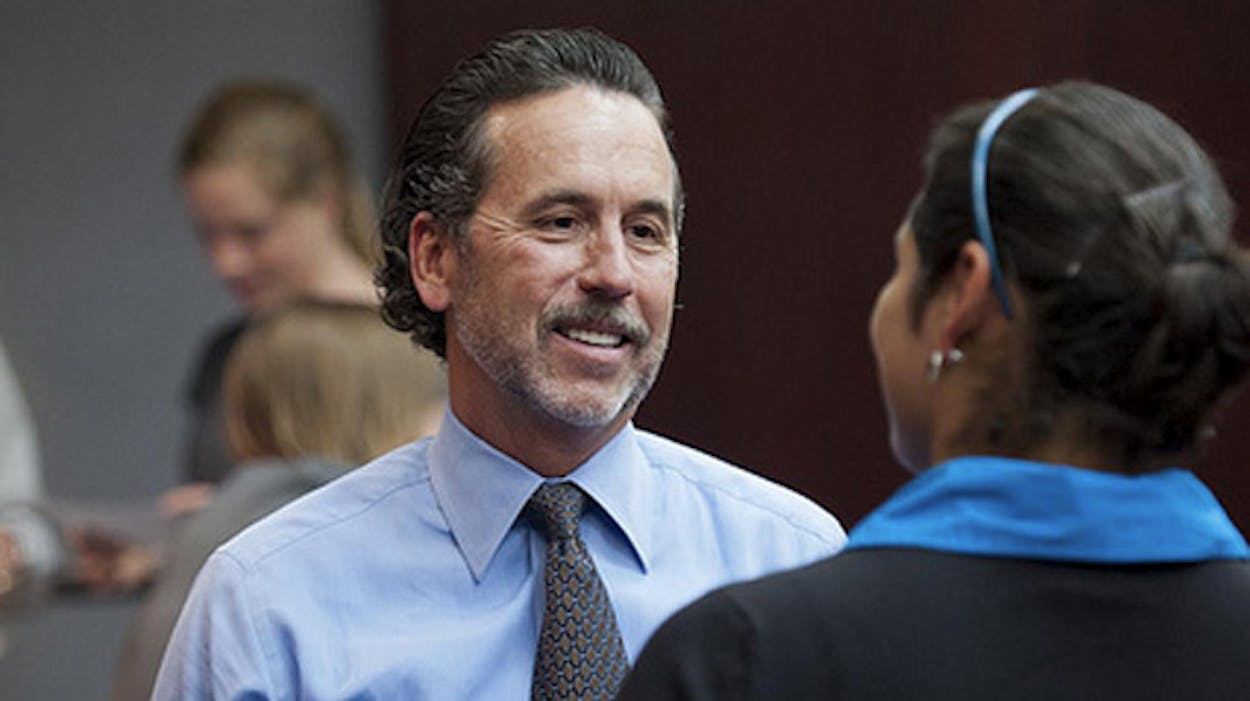It’s a great time to start a business in Texas. According to CNN Money, Texas is the 2nd “most entrepreneurial state in the country,” with a startup rate of 440 per 100,000 adults. Fledgling businesses come to Texas because they know they can find support in the form of startup capital through programs such as the Enterprise Fund, and through universities like Texas A&M, which provide young entrepreneurs new business incubators and a network of alumni who provide mentoring and advice.
Arch “Beaver” Aplin is a Texas entrepreneur and Texas A&M graduate who made it big. He is the founder of Buc-ee’s, a convenience store chain familiar to anyone who has driven the state highways. Aplin and his business partner Don Wasek opened their first store in Lake Jackson, Texas, in 1982 with a focus on cheap ice and clean bathrooms. It was so successful, they decided to expand, and now have 27 locations around the state.
According to Aplin, there’s no magic to starting a business. Hard work, consistency, customer service, and smart accounting skills will get many young business going in the right direction. “No one starts at the top,” Aplin says. “You must start at the bottom to build a great company, then a great brand.”
Here are the five principles Aplin has used to build the Buc-ee’s empire.
1. Develop brand recognition—“A strong brand establishes trust,” says Aplin. The friendly bucktoothed beaver of Buc-ee’s has come to represent an “emotional connection” for customers, and loyal patrons of the convenience store chain associate the character with Aplin’s long-standing goal of maintaining a “clean, friendly and in-stock” store. “If customers trust the Buc-ee’s brand, I can introduce them to things like Beaver Nuggets, camo popcorn and other Buc-ee’s branded products,” he says.
2. Don’t focus on the size of the company—“No one starts at the top. You must start at the bottom to build a great company, then a great brand,” Aplin says, using the example of Sam Walton’s story of Walmart to describe the effectiveness of starting small and differentiating oneself before expanding. Recalling his own experience, Aplin says he had no idea his small convenience store in Lake Jackson, Texas would evolve into what Buc-ee’s is today.
3. Focus and consistency—According to Aplin, most great companies never had a “wow” moment or specific event that propelled them to recognition. Using the example of the “Flywheel Effect” from Jim Collins’ book Good to Great, Aplin says that great companies are built from a collective series of small, yet strong, efforts. Each miniscule “push” contributes to the momentum of the spinning flywheel. “It’s more fun to talk about all the possibilities of the company and go off on tangents,” Aplin says, “but I always have to go back and ask myself, ‘Does this keep my flywheel spinning?’”
4. Exceed customers’ expectations—This is the mantra Aplin has devoted his business to. “Whether you’re into marketing or finance, it doesn’t matter what field you go into, exceed customers’ expectations.” Aplin advises entrepreneurs to “find a reason to be better than mediocre,” and once they’ve done this, they’ll expand their business’ radius of influence.
5. “Take care of your goose”—The goose, Aplin says, is one’s assets and capital. “Maintain your balance sheet so you can react when something good happens and survive when something bad happens,” he advises students.
This story was compiled by Kristin MacKenzie, a Texas A&M University 2012 graduate. No member of the Texas Monthly editorial staff was involved in its production. For more information about sponsor content, see our FAQ.
For more information and to read other entrepreneurship stories, visit Texas A&M or follow @TAMU on Twitter.






